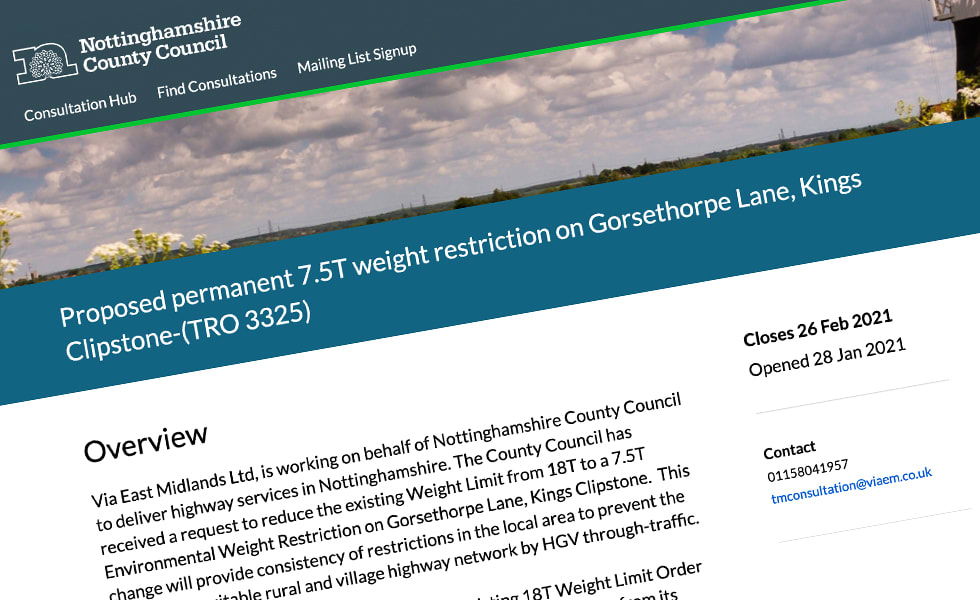Customer story: Nottinghamshire County Council, UK
Traffic Regulation Orders

Traffic Regulation Order process
A Traffic Regulation Order is a document that gives a local authority in the UK permission to make changes to traffic on a certain road or area. TROs can be used to change speed limits, introduce parking charges, add/remove yellow lines, implement one-way systems, and so on.
The TRO process is a lengthy and bureaucratic one, due to the fact that TROs must be advertised in local press, as well as on notices in the affected streets, and residents given a 21 day window to object. If any objections are made councillors need to formally consider them and make any necessary changes. If changes are made the TRO has to be advertised again and the 21-day objection window reopens.
Once the TRO is ready to be implemented, a Notice of Making is published in local press informing residents that the Order is being made.
What’s more, in many instances responses can only be accepted by written letter or by email. This is the case for Nottinghamshire County Council.
Digital TRO notices
In addition to the notices in newspapers and on affected roads, Nottinghamshire use Citizen Space to publicise TROs. Since becoming a customer in 2017, they’ve published over 100 TROs and Notices of Making.
This works for them for a number of reasons:
- It creates a repository of all their TROs which can be easily searched and linked to from their website. It also increases visibility beyond a piece of A4 stuck to a lamppost and a notice in a local newspaper - methods that really aren’t compatible with modern life.
- Building on the above, Citizen Space allows respondents to search consultations by postcode. This, plus a dedicated section to TROs on Nottinghamshire's configurable Citizen Space landing page, makes it quick and easy for a user to find TROs that affect them
- Nottinghamshire ask users to comment on Orders by mail or email. Citizen Space has a function which allows site admins to publish a consultation without the online survey aspect; instead, Nottinghamshire link to the Order in the call to action at the bottom of the page. Contact details for the relevant officer are visible on the overview page, meaning respondents can access everything they need from one page.
Physical notices advertising TROs have a disconnect between information and response. A citizen might see a TRO notice on a lamppost and want to make an objection, but in order to do so they have to either copy down or remember an address/email address to send it to. By the time they get home there’s a chance they won’t send the council anything.
Using Citizen Space for TROs adds some visibility and accountability to a lengthy, bureaucratic democratic process, and allows residents to stay informed about changes to the roads they use.
Want a real person to walk you through a live demo?
We’re happy to help out. We'll answer all your questions. We won't share your contact details.
Request a Free Demo